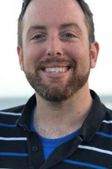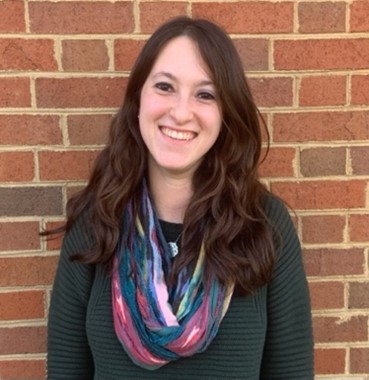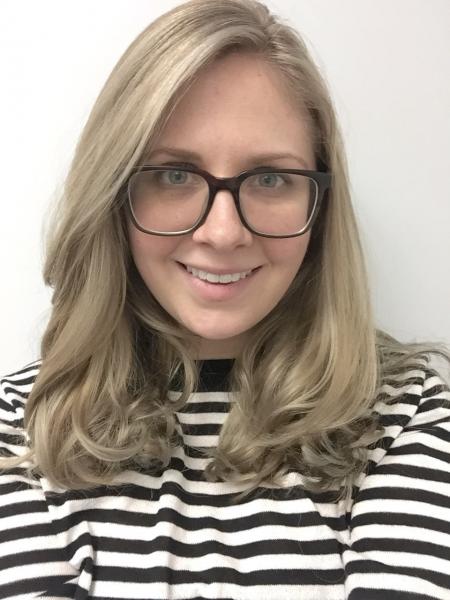American Psychological Association Division 50
Please tell us about a time that you did not receive a position or job. We are interested in learning how you handled not getting this job or position, what you learned from this experience, and what advice you might have for others who find themselves navigating this same situation.

Angelo DiBello, PhD
Rutgers University
“I’m going to be a clinical psychologist!” (Me, 2005-2011). I knew it, was convinced of it, was dedicated to it, until I wasn’t.
Write about failure in academia. Which one? Grad school apps and my shift in focus? My experience on the job market? That time I was so burned out after my first year of a tenure track job that I almost left all together? Grad school apps, starting at the beginning.
In my early training, I thought I was on a linear path which would culminate in acceptance to a clinical psychology PhD program. I had non-first authored publications, first authored poster presentations, worked as a research coordinator, had teaching experience, and my master’s program focused on obtaining direct clinical experience with my population of interest. I was doing it!
Then, during the second year of my MA program, I took the GRE and bombed, again. It was all over! My incredible undergraduate mentor encouraged me to submit my clinical applications, to try. She also suggested one specific applied social psychology lab, one specific potential mentor. So, I did! I had my dream clinical mentor and school, many other applications, and a sense that the GRE was just one part of the total package.
Two things happened. I was the burned out clinician. My clients were staying with me long after our sessions ended. I remember saying to my supervisors, “I only get them one hour a week! What can I do for them the other 167 hours they aren’t here?” I couldn’t turn it off. Could I do this? Add to that, it was February and I did not get a single interview for clinical PhD programs. Was I even going to get the chance? I had failed and was lost and didn’t know how to make sense of it all.
My undergraduate mentor became that stabilizing force I needed. I called, I vented, and she said “Ang, what do you like about all this? Don’t tell me what you thought was going to happen, what do you like about what you are doing?” I went on about how I loved research, wanted to focus on writing papers, and teach more. I didn’t mention clinical work once, she noticed.
That one applied social psychology program she encouraged me to apply to, that became my graduate school home, with one of the best mentors in the academy. The place where I could do the substance use and interventions work I loved with none of the associated clinical work. It was where I met most of my best friends and closest collaborators and developed my emerging academic identity. It was far, both conceptually and geographically, from where I thought I’d end up and it was worth all of it. And that dream clinical psychology mentor that I didn’t even get to interview with, well she became my postdoc mentor and one of the best collaborators I have.
So I guess the point is this, failure happens to all of us at all career stages. Embrace it, try to learn from it, and when you feel lost, remember your mentors and the many others in the field who have been there before and will help you find your way.
“I’m a social psychologist!” (Me, 2015-present)

Rachel Geyer, BA
Miami University
As a senior in college, I wanted to gain a few years of post-bacc clinical research experience before applying to clinical psychology doctoral programs to confirm my interest in and passion for the field. While I spent many years doing research as an undergrad, I really struggled with the job application process. I hit many “walls” where I questioned whether research and this field were right for me. I faced many rejections before receiving an acceptance to a job, and this felt brutal. There were a number of times I would get to a second- or third-round interview at a lab, only to later receive notice of a rejection, or that someone else was the first choice, and they accepted. After several months of this experience, I felt highly demoralized; I questioned my capability within the field, and this took a toll on me. I remember conversations with my advisors, asking, time and time again, what am I doing wrong? What more could I have done to prepare? The more rejections I faced, the more anxious I felt before each interview, even when I practiced and prepared extensively. I remember thinking, at what point do I give up on this as my career?
Finally, in a last round of applications, I submitted a job application to McLean Hospital, to work with Dr. R. Kathryn McHugh. I was incredibly nervous to interview with her current research assistant at that time, and later, with her. I was so excited and hopeful about the position, and also so acutely aware of all of my interview “failures.” Yet, when I interviewed with them, I also felt an immediate connection and “click,” and could really see myself as part of the team there. I was thrilled when I ended up receiving the job offer as a clinical research assistant. Ultimately, all the rejections that I faced before succeeding were “worth it,” and landed me in a position where I had incredible opportunities to learn from amazing researchers and clinicians. This helped me find my own research passions within the fields of anxiety and substance use. My multiple “failures” allowed me to improve my interview skills and also prepared me for the PhD program interview and application experiences (where I also faced rejections!). This experience of multiple failures to land that first post-bacc job taught me many things. I learned that I can’t place so much of my sense of “self-worth” on my interview or academic success, especially when I may never learn exactly why I didn’t land a position, and it may not even be personal at times. I learned that it’s important to allow space to experience the tough emotions, and to reach out and ask for advice and support from trusted colleagues, mentors, and supervisors when needed. Finally, I learned the importance of patience! Ultimately, these lessons from my initial career “failures” have carried forward and have helped as I weather the many tough storms of being a clinical psychology PhD student.

Julianne Price, PhD
Rutgers University—New Brunswick
In the midst of writing my dissertation, I applied for a competitive postdoctoral fellowship. After submitting my application, I heard through the grapevine that I was one of the top applicants, I thought at this point I must be a shoe in. When final decisions were made, I was surprised to find out that I didn’t get the position. Others with inside knowledge were equally surprised. Rumors swirled that my personal life may have been a factor— a newly-married pregnant graduate student? How serious can she be? In the following weeks I received my first ever manuscript rejection, followed by another one, soon followed by my first ever desk rejection. I started to doubt my abilities, “maybe I’m not cut out for this career.” A month later the pandemic forced me out of my office. Working from home with a newborn, I began to spiral with imposter syndrome. I’ve finally been found out. I’m a fraud, a very convincing snake oil salesman.
Not long after, my husband and I received great news; we received two of the inaugural fellowships on the Molecular Neuroscience of Alcohol and Drug Abuse Research Training Program (MNADRT T-32) at Rutgers University. I defended and published my dissertation, and in the following 12 months submitted my first NIH grant, published two chapters with my postdoctoral mentors, two empirical studies with my graduate school mentor, and a Special Communication in JAMA with collaborators (JAMA, y’all!). I won an award for my presentation on neurocardiac interventions in women with substance use disorders.
I will never know if the rumors were true, if I lost the fellowship due to personal or professional reasons. But allowing curiosity to fester didn’t serve me. The decision was made by highly qualified professionals and I must give them the benefit of the doubt. The best thing I could do was move on to the next big thing. I learned two important lessons from all of this. 1. Successes and failures are fleeting and if you ascribe your value (or lack thereof) to either, true self-satisfaction will be unobtainable. 2. You must continue to practice self-care through your successes and failures and foster your personal relationships. Your manuscripts won’t be there for you when you fall, nor will they celebrate the little wins with you. Your emotional wellness and your support system are more important than any career milestone. I’ve made a point to carve out daily time for pleasure—turning a lunch break into a picnic with my husband, quitting work early to go for a run around the neighborhood, becoming reacquainted with old hobbies and friends; and I think my work is all the better for it.

Resources are available for those struggling with addiction and numerous effective treatments exist. Whether you are looking for help for yourself or a loved one, we encourage you to seek out help.